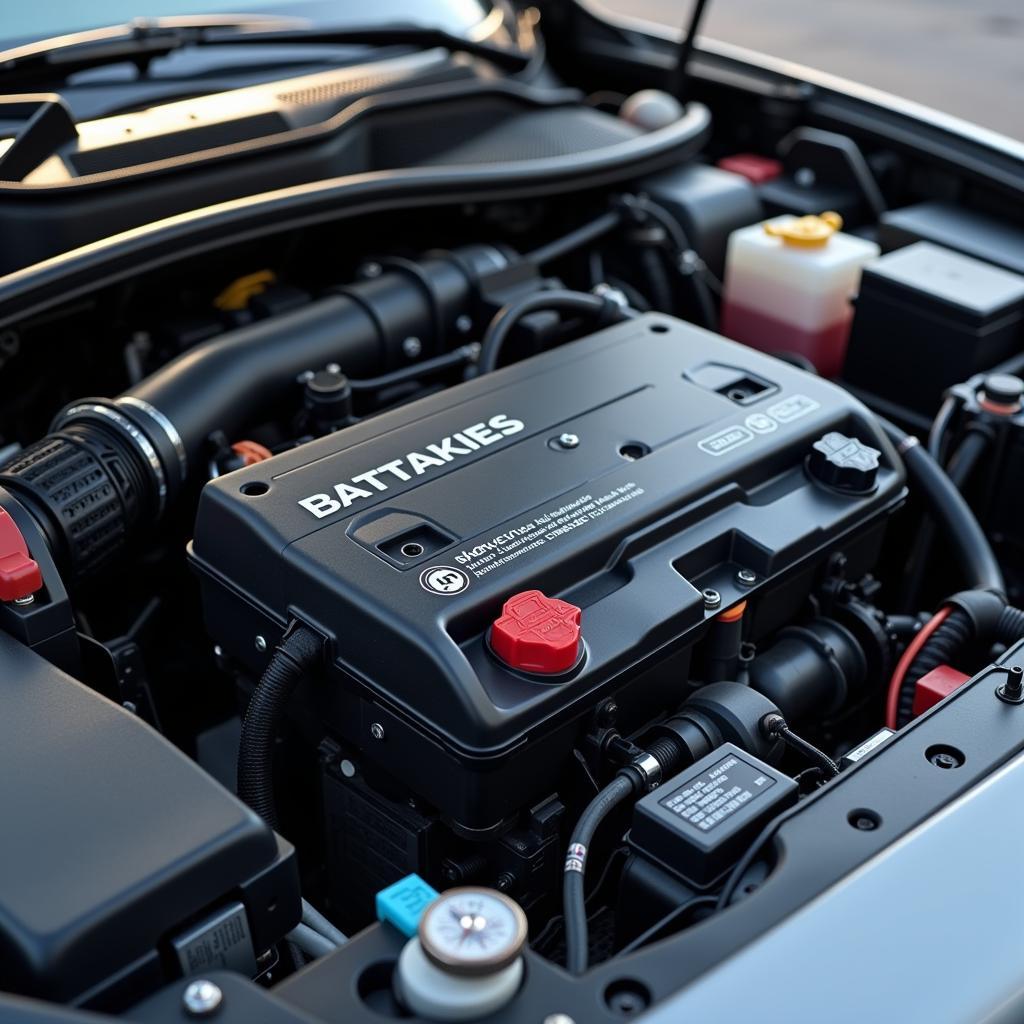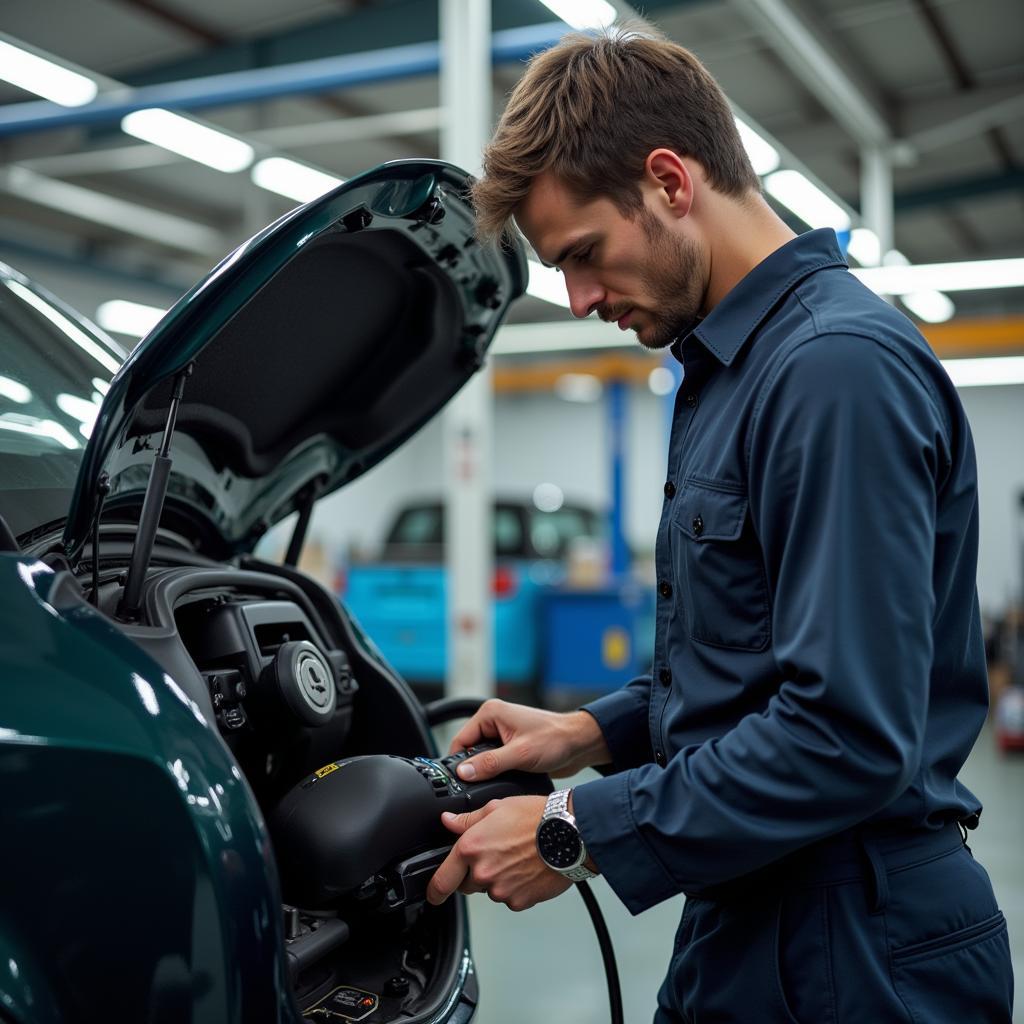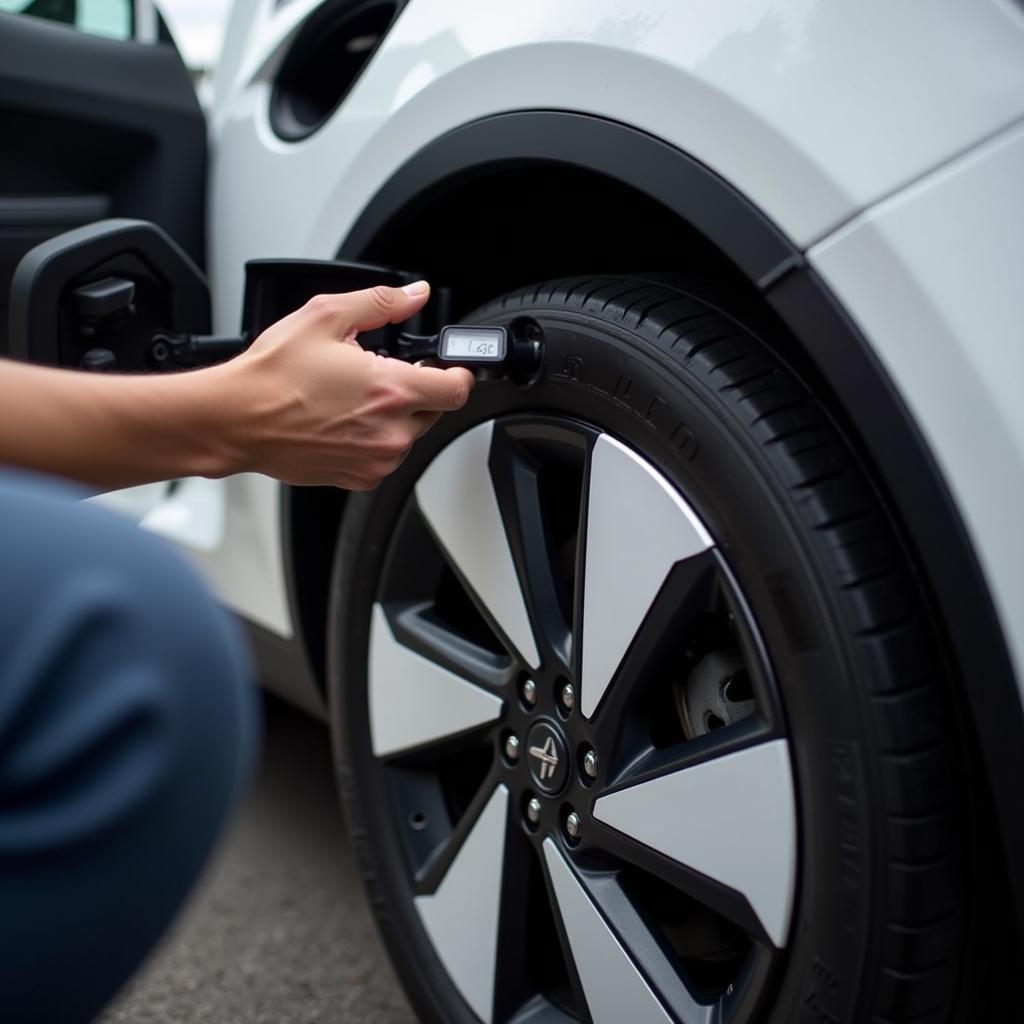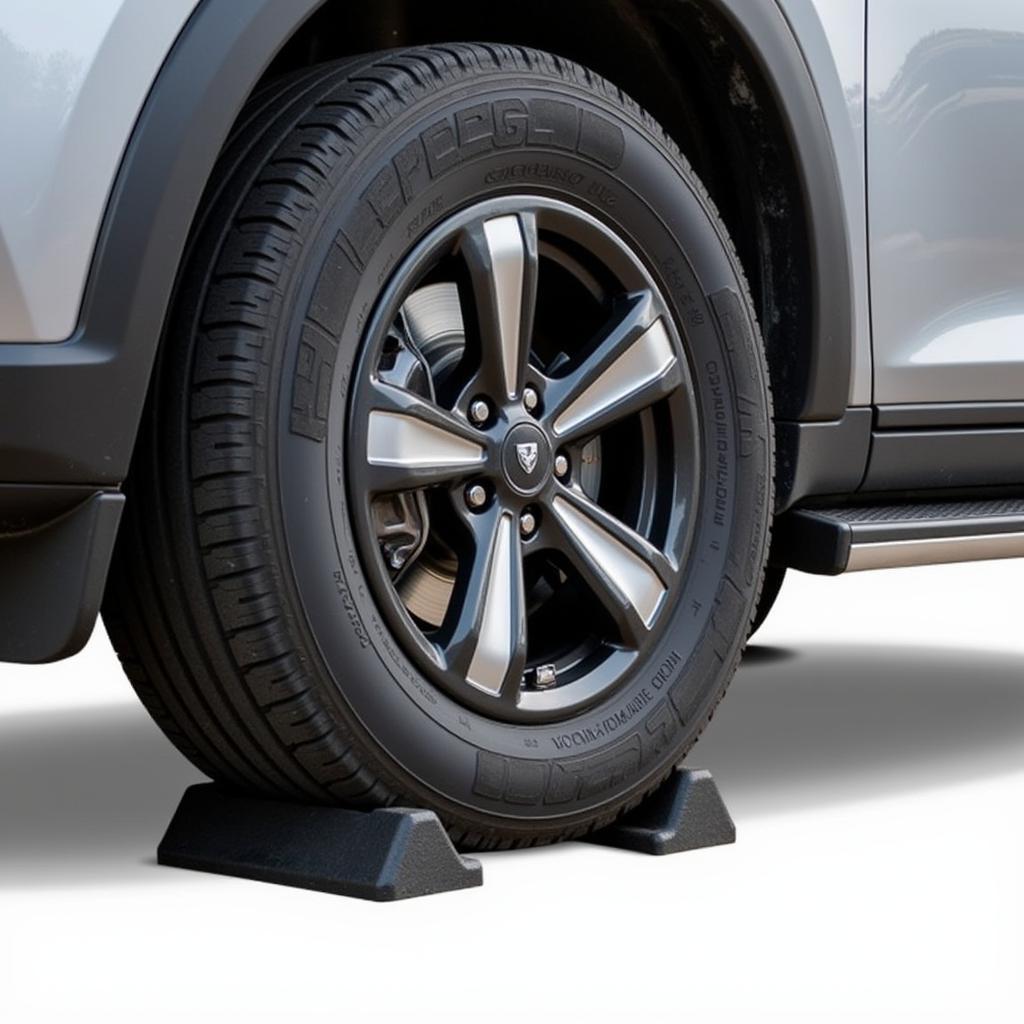Owning an electric vehicle (EV) comes with a unique set of maintenance considerations, as the technology differs significantly from traditional gasoline-powered vehicles. While EVs require less frequent oil changes and tune-ups, there are specific components that need regular attention to ensure optimal performance and longevity. This comprehensive guide will outline a detailed Ev Car Maintenance Schedule for owners and mechanics, covering everything from routine inspections to specialized procedures.
Understanding the Unique Needs of EVs
Electric cars are becoming increasingly popular due to their environmental friendliness and cost savings. However, maintaining an EV effectively requires a different approach compared to gasoline cars. The key difference lies in the powertrain. Instead of a combustion engine and a complex transmission system, EVs rely on a battery pack, an electric motor, and a power electronics unit.
Battery Maintenance
The heart of any EV is its battery pack, which stores the energy that powers the vehicle. Proper battery care is crucial for maximizing its lifespan and ensuring optimal performance. Battery health is influenced by factors like temperature, charging habits, and driving style.
 Electric Vehicle Battery Pack
Electric Vehicle Battery Pack
- Regular Inspections: Visual inspections of the battery pack for signs of damage, leaks, or corrosion should be conducted regularly.
- Charging Habits: Always use the recommended charger for your EV and avoid leaving the battery at a consistently low or high state of charge.
- Temperature Management: Extreme temperatures can negatively impact battery life. Park your EV in shaded areas and utilize cooling systems if available.
Electric Motor Care
The electric motor in an EV is highly efficient and requires minimal maintenance. However, it’s essential to keep it clean and free from debris.
- Cooling System: Ensure the cooling system is functioning properly, as it helps regulate the motor’s temperature and prevents overheating.
- Regular Inspections: Visual inspections of the motor and its wiring for signs of damage, fraying, or wear and tear should be part of routine maintenance.
Power Electronics Unit (PEU)
The PEU acts as the brain of an EV, controlling the flow of electricity from the battery to the motor.
- Cooling System: The PEU also relies on a cooling system to prevent overheating. Ensure the system is functioning properly.
- Regular Inspections: Visual inspections of the PEU for signs of overheating, corrosion, or damage are essential.
EV Car Maintenance Schedule: A Detailed Breakdown
While specific maintenance schedules vary depending on the manufacturer and model, here’s a general guideline for EV car maintenance:
Routine Inspections
 Mechanic Inspecting Electric Vehicle
Mechanic Inspecting Electric Vehicle
- Every 3,000 miles: Check tire pressure, brake fluid levels, windshield washer fluid, and lights. Inspect for any visible signs of damage or wear and tear on the exterior and interior.
- Every 6,000 miles: Perform a more in-depth inspection, including checking the battery pack, electric motor, and PEU for any signs of issues. Verify the cooling system is working properly and inspect for leaks or corrosion.
Specialized Maintenance
- Every 12,000 miles: Replace cabin air filter, rotate tires, and inspect the brake pads and rotors.
- Every 24,000 miles: Check and top off fluids, including coolant, brake fluid, and power steering fluid.
- Every 36,000 miles: Replace the brake pads and rotors (if necessary), inspect the tires for tread wear, and perform a thorough inspection of all electrical components.
Tips for Maintaining Your EV
- Consult the Owner’s Manual: Always refer to your EV’s owner’s manual for specific maintenance recommendations and schedules.
- Use Recommended Fluids and Lubricants: Always use the fluids and lubricants recommended by the manufacturer.
- Regular Cleaning: Keep your EV clean, both inside and out, as dirt and debris can damage components.
- Keep Battery Pack Charged: Avoid letting the battery pack discharge completely to ensure optimal lifespan.
- Avoid Excessive Heat: Extreme temperatures can shorten battery life, so park in shaded areas when possible.
What You Can Do Yourself
 Checking Electric Car Tire Pressure
Checking Electric Car Tire Pressure
- Check Tire Pressure: Regularly checking tire pressure is crucial for fuel efficiency and handling.
- Wash and Clean Your Car: Washing your EV removes dirt and debris that can damage the exterior and affect performance.
- Check Fluid Levels: Ensure the windshield washer fluid, brake fluid, and coolant levels are adequate.
Frequently Asked Questions (FAQs)
Q: How often do I need to replace the battery pack in an EV?
A: EV battery packs have a lifespan of several years, typically between 8-10 years or 100,000-150,000 miles. However, factors like charging habits, temperature, and driving style can significantly affect battery life.
Q: Can I replace the battery pack myself?
A: It is highly recommended to have the battery pack replaced by a qualified technician, as it is a complex and specialized procedure.
Q: How do I know if my EV’s battery pack is failing?
A: Signs of a failing battery pack include reduced range, slower charging times, or a warning light on the dashboard.
Q: What should I do if my EV’s electric motor fails?
A: If you experience an issue with the electric motor, contact a qualified mechanic immediately. It is not recommended to attempt repairs yourself.
Q: How often do I need to service my EV?
A: EVs require less frequent servicing than gasoline cars. However, it’s important to follow the manufacturer’s recommendations and schedule regular maintenance to ensure optimal performance and longevity.
Get in Touch for Expert EV Maintenance Support
At Autotippro, we offer a wide range of services for EV owners and mechanics. Our team of experts is committed to providing top-notch maintenance and repairs for all types of EVs. Contact us today to schedule an appointment or learn more about our services:
Phone: +1 (641) 206-8880
Office: 500 N St Mary’s St, San Antonio, TX 78205, United States
By following this comprehensive maintenance schedule and seeking expert advice when needed, you can keep your EV running smoothly and reliably for years to come. Remember, proper maintenance is essential for maximizing your EV’s lifespan and performance.






Leave a Reply